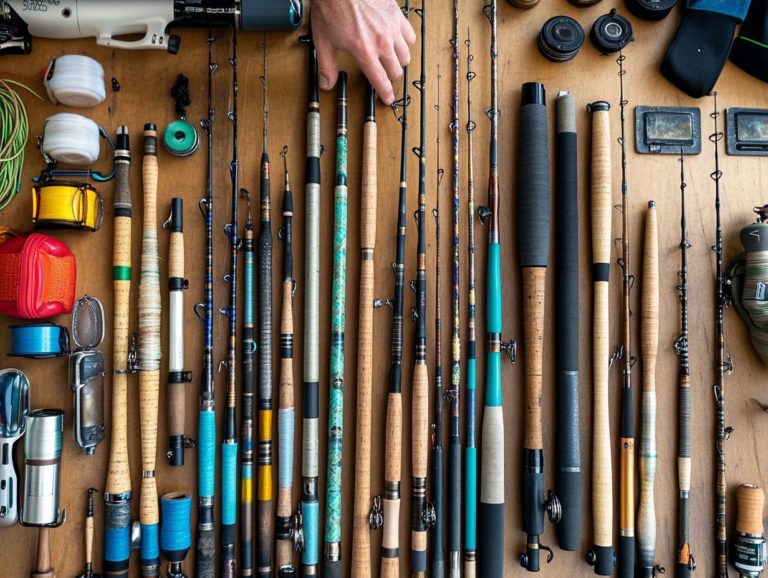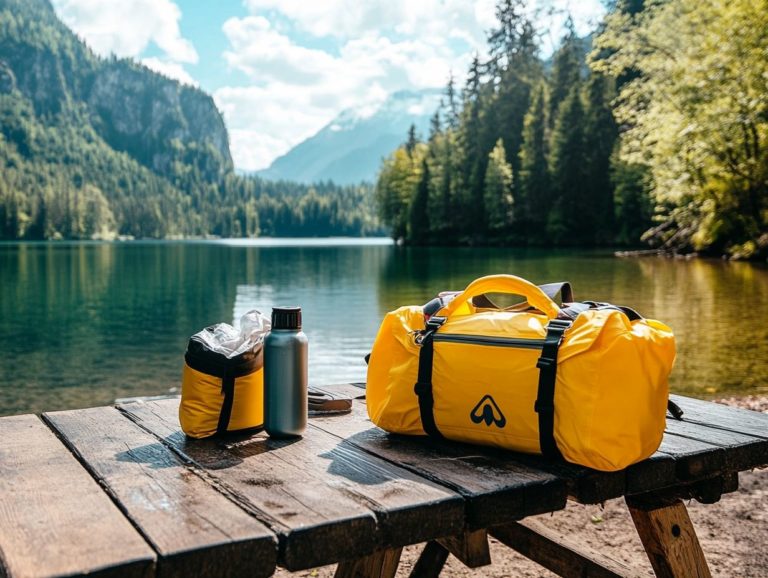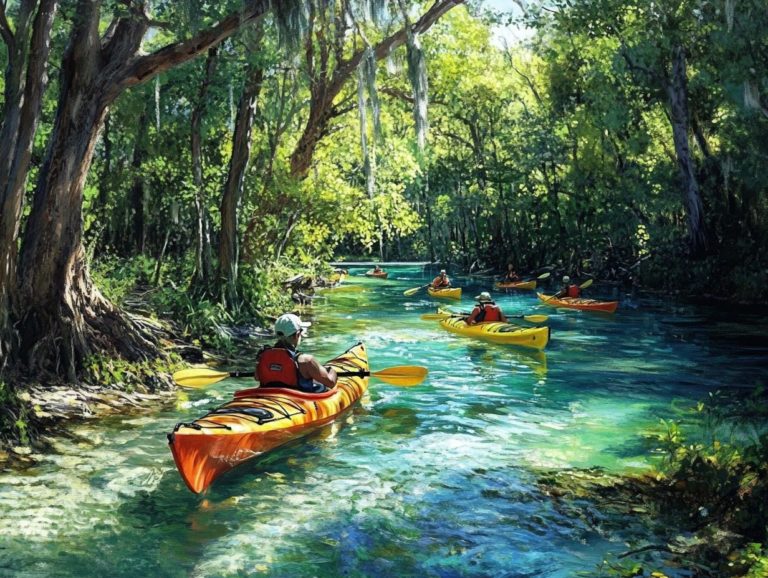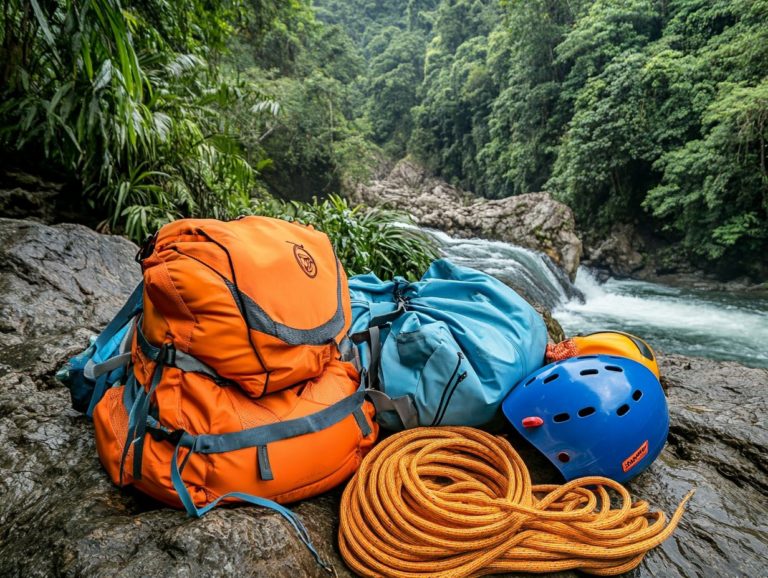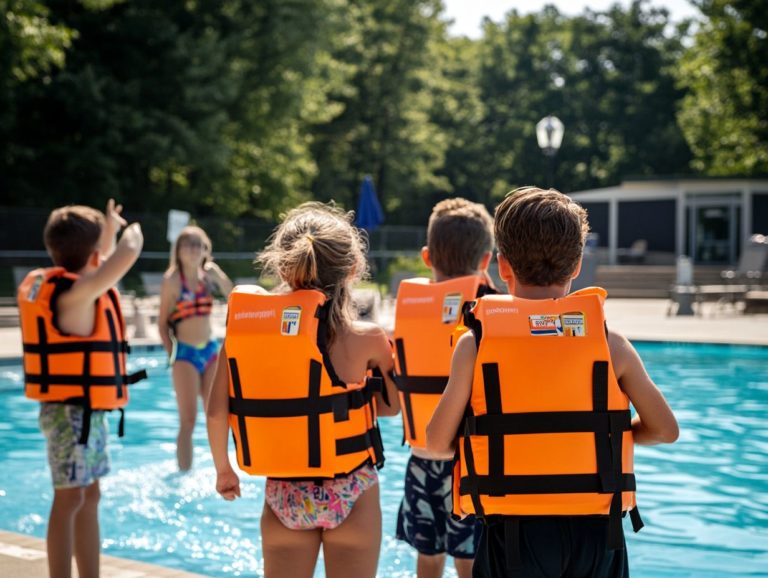How to Prepare for a Water Sports Competition
Are you ready to push your limits in water sports? Preparing for a water sports competition requires a comprehensive approach that goes beyond just physical training.
From enhancing your strength and endurance to refining your mental strategies, every facet is vital for achieving peak performance.
This article delves into the essential preparations you need covering training, nutrition, and mental tactics. It also addresses the logistics of gear and travel, ensuring you’re impeccably equipped for competition day.
Whether you’re a seasoned athlete or just starting out, these insights will guide you toward success.
Contents
- Key Takeaways:
- Physical Preparation for a Water Sports Competition
- Nutrition and Hydration
- Mental Preparation for a Water Sports Competition
- Logistical Preparation for a Water Sports Competition
- Competition Day Strategies
- Strategies for Different Events
- Frequently Asked Questions
- What are some essential items to bring when preparing for a water sports competition?
- How can I train effectively for a water sports competition?
- What should I eat before a water sports competition?
- How do I mentally prepare for a water sports competition?
- What are some safety precautions to take when preparing for a water sports competition?
- What should I do on the day of the water sports competition?
- Frequently Asked Questions
Key Takeaways:
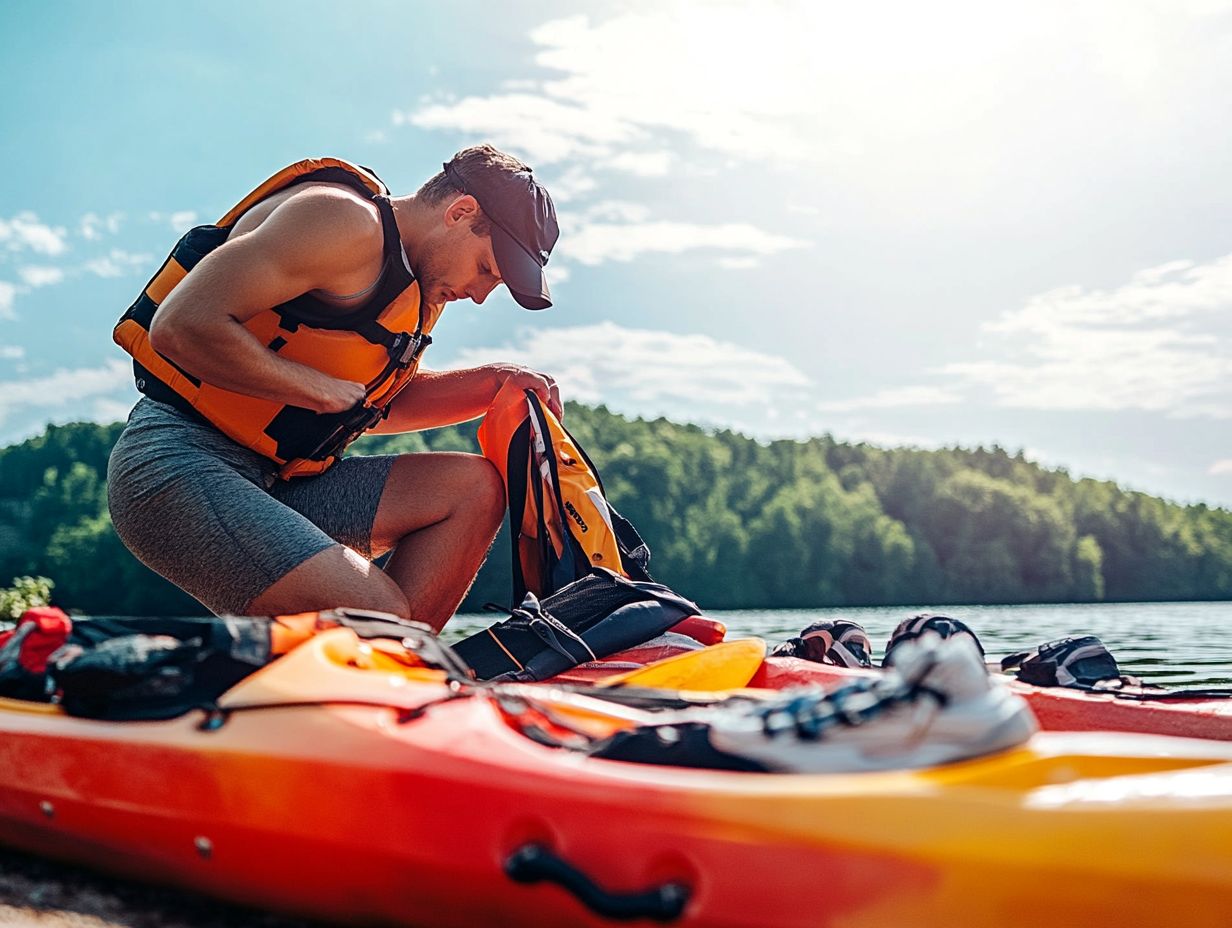
- Stay physically prepared by training to get fit and fueling your body with proper nutrition and hydration.
- Mentally prepare yourself by visualizing success, setting achievable goals, and managing nerves through relaxation techniques.
- Make sure to handle your logistics now to avoid last-minute stress! This includes ensuring you have the right equipment and planning for travel and accommodations.
Types of Water Sports Competitions
Water sports competitions encompass a variety of thrilling activities that not only showcase your skills but also deepen your connection with aquatic ecosystems and the great outdoors.
Whether you re kayaking down rushing rivers or riding the perfect wave while surfing, each sport presents unique challenges and rewards that appeal to those seeking an adrenaline rush.
Events like wakeboarding, kite surfing, and wingfoiling highlight your individual prowess as well as the teamwork and preparation needed for successful competitions.
Keep safety protocols in mind, such as wearing personal flotation devices and staying aware of local water conditions. While you relish the exhilarating experience, it s equally important to consider the environmental impact of your activities, ensuring that you don’t disturb delicate aquatic ecosystems.
Legal compliance is crucial too; understanding any necessary permits for specific locations is part of your responsibility. Being prepared for emergencies knowing first aid and having an escape plan can make all the difference in a competitive setting.
Such thorough preparation fosters a safe sporting environment and deepens your respect for nature and its wonders.
Physical Preparation for a Water Sports Competition
Physical preparation is a cornerstone for achieving success in water sports competitions. This involves a blend of critical elements like training to get fit and essential safety measures to avoid accidents.
You need to immerse yourself in rigorous training routines that elevate your physical capabilities and align with the specific demands of your chosen sport.
It s vital to pay attention to your own well-being and the safety of those around you, ensuring a secure and fulfilling competitive experience.
Training and Getting Fit
Training to get fit is vital for your preparation for any water sports competition, as you must meet specific physical requirements unique to each activity.
Whether you re gearing up for kayaking or kite surfing, your training regimen should prioritize building strength, endurance, and flexibility. This approach will optimize your performance and bolster your self-confidence on race day.
To reach these objectives, incorporate training techniques tailored to the demands of your chosen sport. For example, strength training with resistance bands or weights can significantly boost your paddling power if you re a kayaker.
If kite surfing is your passion, exercises that help you balance better will enhance your stability during tricky maneuvers.
Don t overlook the importance of cross-training. Engaging in complementary activities like swimming, cycling, or yoga can help prevent burnout while developing your overall fitness.
Remember, adhering to safety guidelines throughout your training process is paramount. This minimizes the risk of injuries and ensures a seamless transition into competition.
Start your training today and conquer the waters!
Nutrition and Hydration
Nutrition and hydration are vital for your preparation in water sports competitions. They directly influence your performance and overall well-being. By fueling your body with balanced meals and maintaining proper hydration, you’re enhancing your physical capabilities and bolstering your mental preparation and focus during events.
If you re competing in disciplines like rowing, swimming, or water polo, your nutritional needs can be quite specific. Prioritize complex carbohydrates such as whole grains and fruits. These will provide you with sustained energy for rigorous training sessions in the water. Incorporate lean proteins, like fish and poultry, to aid in muscle repair and recovery after competitions.
Effective hydration strategies are crucial. Consume drinks that have added salts and minerals to counteract fluid loss from intense activity, especially in warm conditions. By closely monitoring these dietary essentials, you can significantly boost your endurance and stamina, setting yourself up for success in your water sport endeavors.
Mental Preparation for a Water Sports Competition
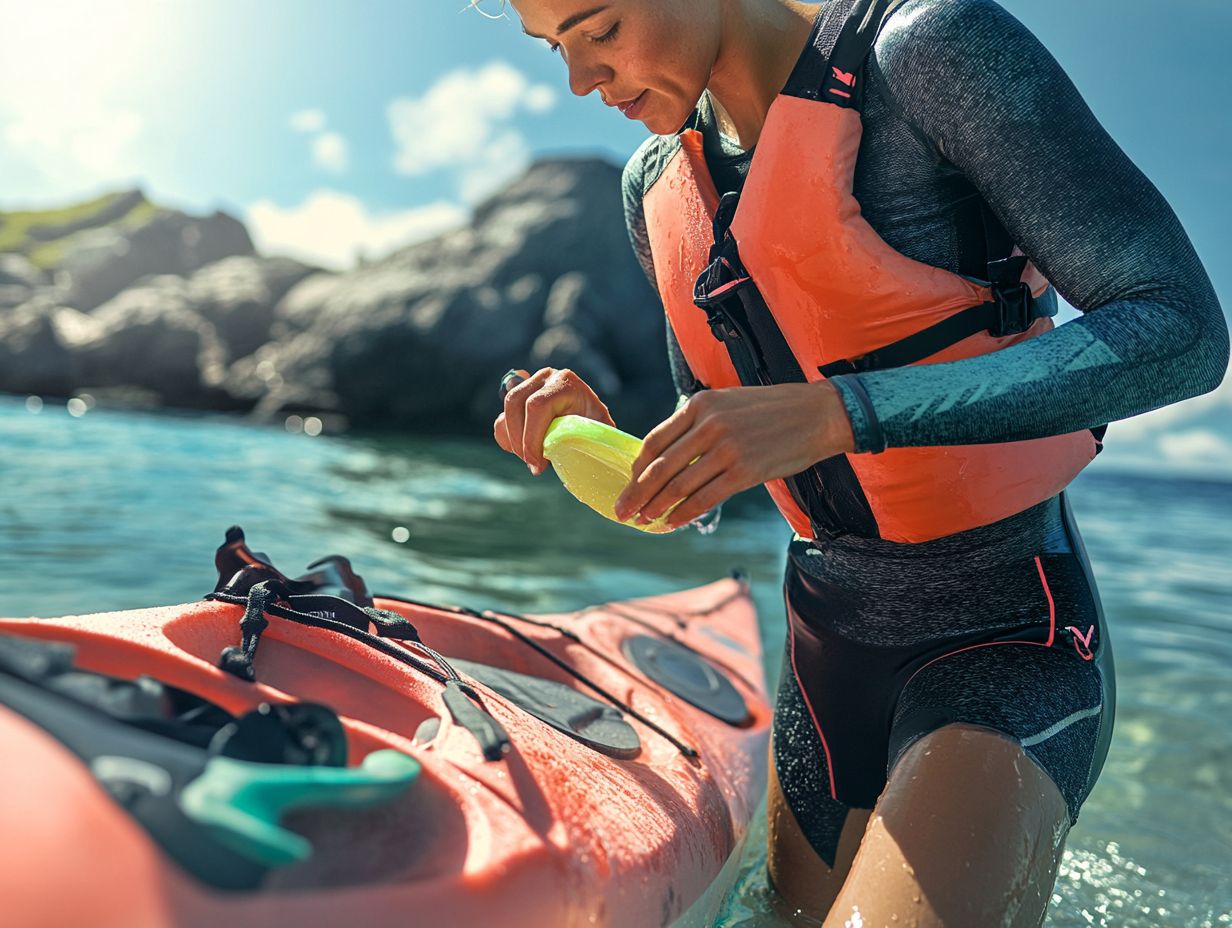
Mental preparation is just as crucial for your success in water sports competitions. Employ strategies like visualization and goal setting to build self-confidence and maintain focus on race day.
Engage in techniques that allow you to mentally rehearse your performance while establishing realistic, achievable goals. This approach enhances your mindset and elevates your overall experience in the competition.
Visualization and Goal Setting
Visualization and goal setting are invaluable tools for water sports athletes. They help build self-confidence and maintain sharp focus during competitions. By mentally rehearsing your performance and establishing clear, achievable goals, you can alleviate anxiety and enhance your overall performance on race day.
These techniques instill a strong sense of purpose and lay the groundwork for mental resilience. Visualize various scenarios, from ideal races to potential challenges. This practice allows you to navigate obstacles with ease.
When setting goals, ensure they are specific, measurable, achievable, relevant, and time-bound. This approach sustains your motivation and alleviates performance pressure. By focusing on these elements, you enhance your skill set and cultivate a profound belief in your abilities, boosting your self-confidence and preparing you to excel when it counts.
Managing Competition Nerves
Managing competition nerves is essential for your mental preparation. Anxiety can significantly affect your performance, so it s crucial to develop strategies that help you channel those nerves positively. Transforming anxiety into excitement enhances your self-confidence and helps you maintain effective focus on race day.
Incorporate breathing exercises into your pre-race routine. These techniques help you regulate your heart rate and calm your mind, fostering a sense of control that s invaluable. Positive affirmations are another powerful tool, reinforcing your capabilities and cultivating a winning mindset.
Mindfulness practices, particularly visualization techniques, allow you to mentally rehearse your performance. This creates a vivid mental image of success, making it easier to achieve your goals.
Together, these approaches help reduce anxiety and promote resilience, enabling you to thrive under pressure.
Logistical Preparation for a Water Sports Competition
Logistical preparation is paramount for a successful water sports competition. Engage in meticulous planning of your equipment, travel arrangements, and accommodations to guarantee a seamless experience.
Take into account the safety guidelines and regulations relevant to your chosen sport. This includes thoroughly inspecting your equipment and ensuring compliance with all legal requirements before the event.
Equipment and Gear
Choosing the right equipment and gear is essential for your success in any water sports competition. It directly influences both your performance and safety on the water.
Make sure to have the appropriate gear like life jackets, water shoes, and sport-specific equipment. Additionally, it’s important to understand what to know about water sports etiquette. Routinely inspect everything to meet safety guidelines and regulations.
For activities like kayaking, paddleboarding, or jet skiing, specialized accessories such as paddles, leashes, and even wetsuits are crucial. Conduct a thorough check of your gear before you head out. This maximizes its durability and minimizes the risks of accidents caused by faulty equipment.
Enhanced performance often comes from using the right tools, enabling you to navigate challenges with both confidence and efficiency. Regular maintenance and proper storage practices will ensure that your gear stays in top shape, leading to a smoother and more enjoyable experience on the water.
Travel and Accommodations
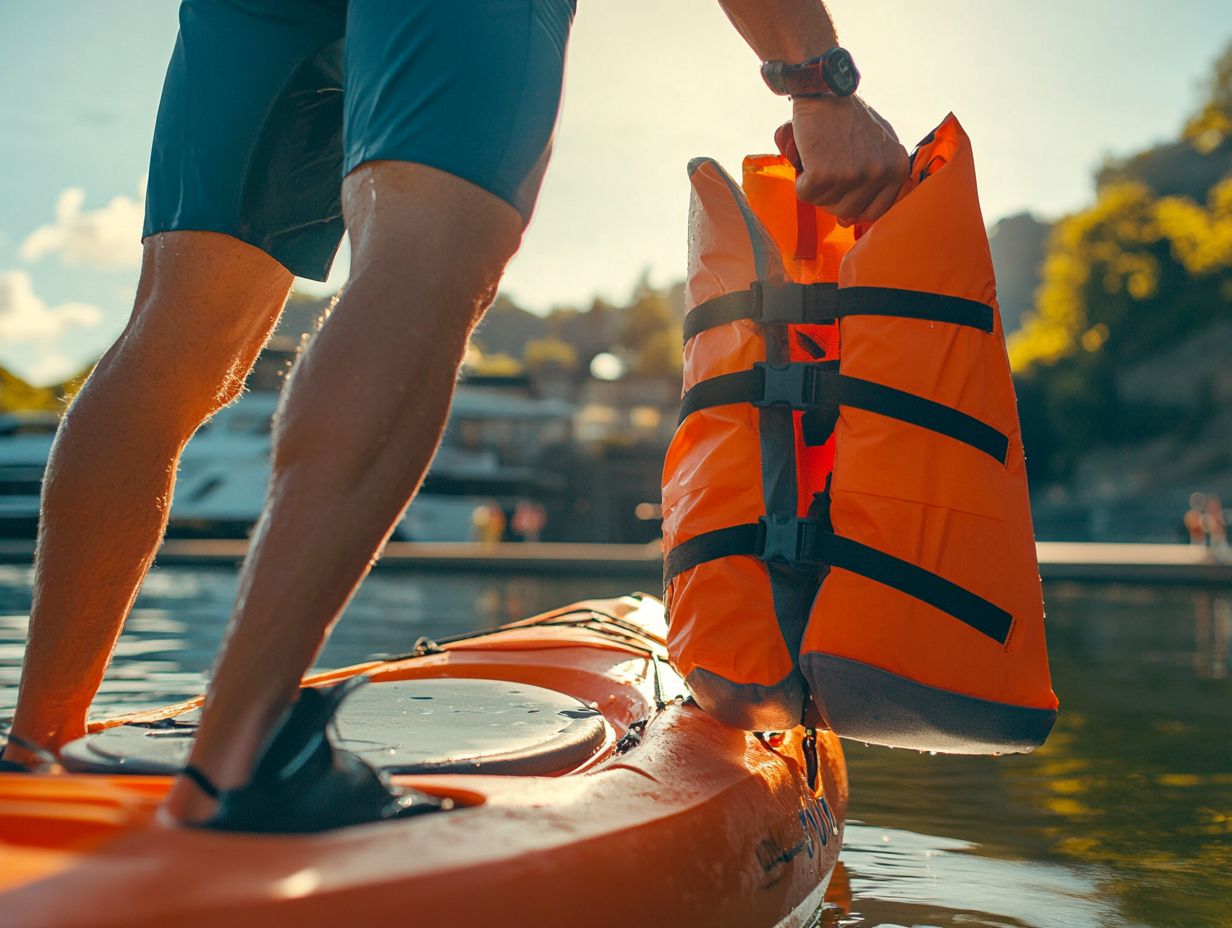
Effective planning for your travel and accommodations is crucial in preparing for a water sports competition. This ensures you arrive ready to perform at your best.
This means rushing to choose the best lodging options and being aware of local laws and regulations that may affect your participation in the event.
Prioritize accommodations that are conveniently located near the competition site to minimize travel time and reduce stress. Consider using travel planning tools to help you map out routes and estimate arrival times, ensuring you reach the venue promptly.
Familiarize yourself with any regional legal requirements, such as permits or safety regulations, to ensure compliance and avoid potential disruptions. You should reach out to event organizers for recommended hotels and possible group rates, making your overall experience smoother and more enjoyable.
Competition Day Strategies
On competition day, using smart strategies is essential for optimizing your performance and ensuring a rewarding experience. Focus on warm-ups and pre-race routines that prepare you both mentally and physically.
Your preparation should also include emergency measures to handle any unexpected situations that may arise during the event. This ensures you re ready for anything that comes your way.
Warm-up and Pre-Race Routine
A proper warm-up and pre-race routine are absolutely essential for you as an athlete participating in water sports. They set the stage for both your body and mind to achieve peak performance.
Engaging in a dryland warm-up can significantly boost your self-confidence and ensure you’re physically primed for the challenges ahead.
Incorporating dynamic stretches, such as arm circles and leg swings, is vital for activating the key muscle groups you rely on in activities like swimming, kayaking, or paddleboarding.
Sport-specific drills whether that’s perfecting your strokes or executing buoy turns play a crucial role in refining your techniques. These practices enhance physical readiness and foster a sense of familiarity and control over your performance.
As you consistently adhere to effective pre-race routines, you’ll build a mental repertoire that reinforces your capabilities. This amplifies your self-assurance just before you hit the water.
Strategies for Different Events
Strategies for various water sports events can differ significantly. You need to adopt specific strategies based on the demands of each competition.
Understanding the details of each event helps you devise effective tactics. This elevates your performance and boosts your mental readiness for the big day.
Take kayaking as an example. Mastering your paddle strokes and syncing them with the current can make a world of difference in terms of speed and efficiency.
If you re a surfer, developing balance and recognizing wave patterns is crucial for riding successfully.
Wakeboarding presents its own challenges. Here, precision in technique and calculated jumps are essential for pulling off impressive stunts in the air.
In all these events, maintaining mental focus is vital. Learning to stay relaxed and composed under pressure is just as important as your physical skills.
Incorporating visualization techniques before you hit the water can prove invaluable. This bridges the gap between preparation and execution, setting you up for success.
Frequently Asked Questions
What are some essential items to bring when preparing for a water sports competition?
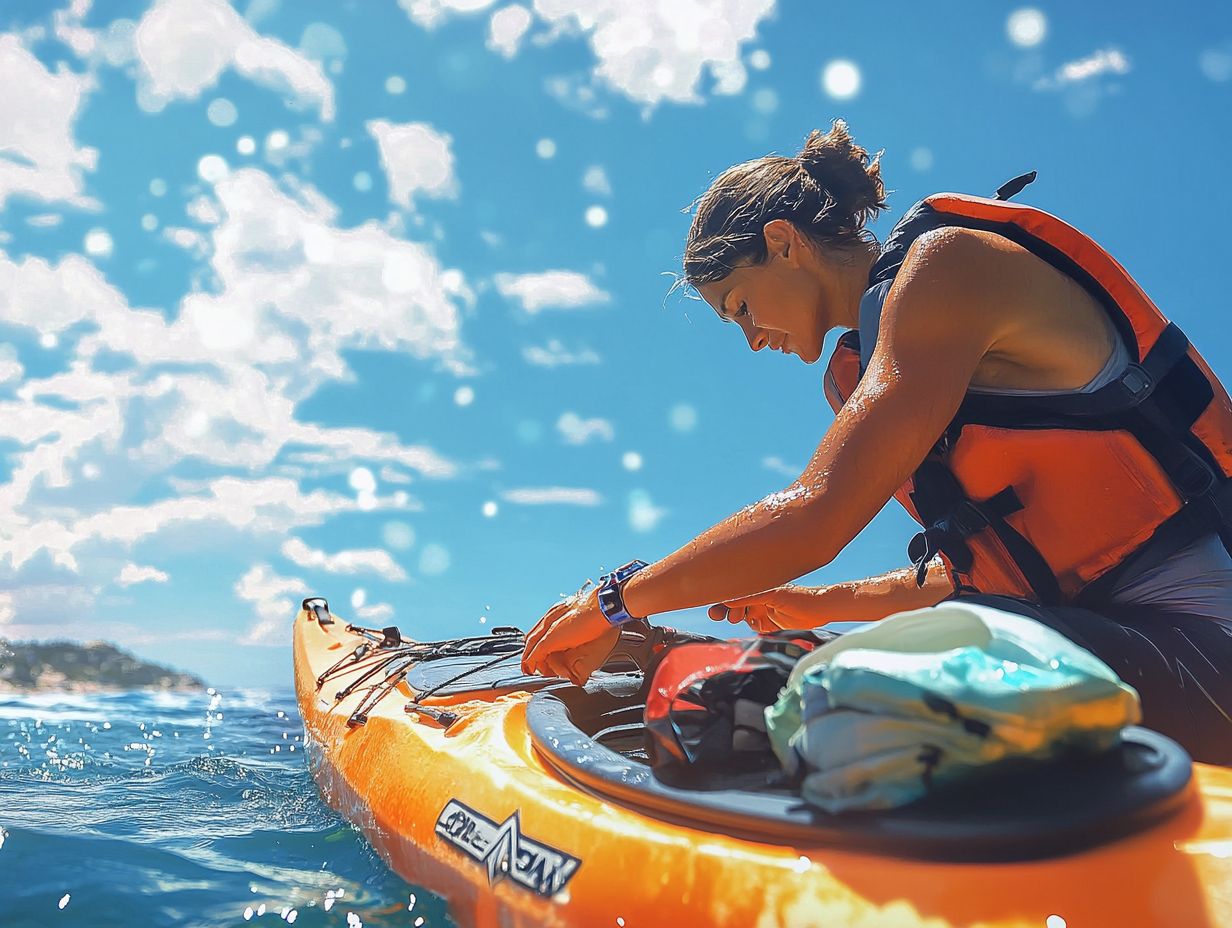
Some essential items to bring include a wetsuit or swimsuit, water shoes, a towel, sunscreen, a water bottle, and any necessary equipment specific to your chosen water sport.
How can I train effectively for a water sports competition?
Train effectively by setting a training schedule, focusing on both strength and endurance. Practice on the specific body of water where the competition will take place.
What should I eat before a water sports competition?
Fuel your body with a balanced meal that includes carbohydrates for energy, protein for muscle repair, and healthy fats. Foods like oatmeal, eggs, and fruit are great options.
How do I mentally prepare for a water sports competition?
Mental preparation is as important as physical preparation. Visualize yourself succeeding, stay positive, and set achievable goals for yourself.
What are some safety precautions to take when preparing for a water sports competition?
Always check weather and water conditions before heading out to practice. Wear a life jacket if necessary and have a designated spotter if you re practicing alone.
What should I do on the day of the water sports competition?
Arrive early so you can warm up and get pumped for the competition. Stay hydrated, stretch, and mentally prepare yourself before it begins. And most importantly, have fun!

